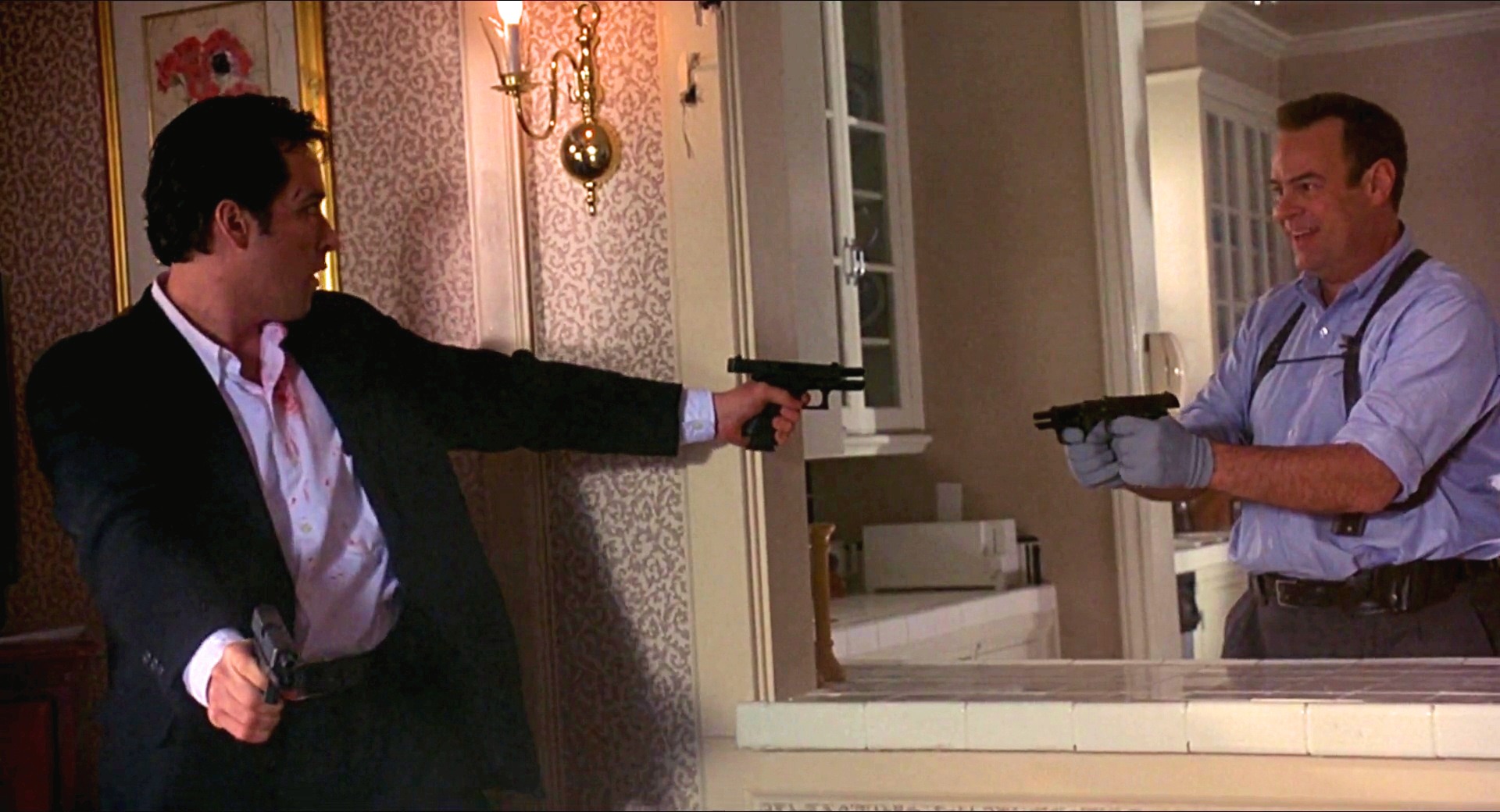Of the many violence-inflected black comedies that Pulp Fiction spawned, Grosse Pointe Blank ranks among the best. Though it’s patently inspired by Tarantino’s magnum opus — John Cusack plays a sardonic, amoral hitman, and the film features bursts of stylized violence and a retro soundtrack — it never feels derivative. The film finds its own identity as a quirky romcom when Cusack’s character, Martin Blank, returns to his hometown for a 10-year high-school reunion on the advice of his terrified therapist (Alan Arkin).
Martin is experiencing professional disillusionment as part of the quarter-life crisis that often takes hold when one realizes it’s been a whole decade since high school. His profession puts a darkly comic spin on that convention, but the film doesn’t treat that element entirely flippantly. Unlike Martin — and so many of the film’s Pulp Fiction-inspired brethren — Grosse Pointe Blank isn’t nihilistic, but quite sincerely romantic. Its hybrid nature and surprising heart come to the fore in Martin’s renewed relationship with the girlfriend he jilted at prom: Debi (Minnie Driver), now a ska-loving radio DJ. Cusack and Driver have sparkling chemistry, which makes the sincerity with which their characters grapple with the possibility of a second chance at happiness all the more absorbing to watch.
Synopsis
Martin Blank is a hitman for hire. When he starts to develop a conscience, he botches a couple of routine jobs. On the advice of his secretary and his psychiatrist, he decides to attend his ten-year high school reunion in Grosse Pointe, Michigan.
Storyline
In the midst of a quarter-life crisis, an assassin returns to his hometown to attend his high school reunion and make amends with the childhood sweetheart he jilted 10 years ago — all while a rival hitman plots his demise.
TLDR
Before Aftersun's emotionally climactic Under Pressure needle-drop, there was Grosse Pointe Blank’s emotionally climactic Under Pressure needle-drop.
What stands out
The killer soundtrack. Joe Strummer of The Clash fame provided Grosse Pointe Blank with its original score and curated a soundtrack that features an assortment of ska, punk, and rock bangers (including, fittingly, a couple of Clash songs). The result is winningly nostalgic, wryly funny, and emotionally earnest where it needs to be — as in the climactic high school reunion scene, where Martin’s emotional epiphany is set to David Bowie and Queen’s Under Pressure.






